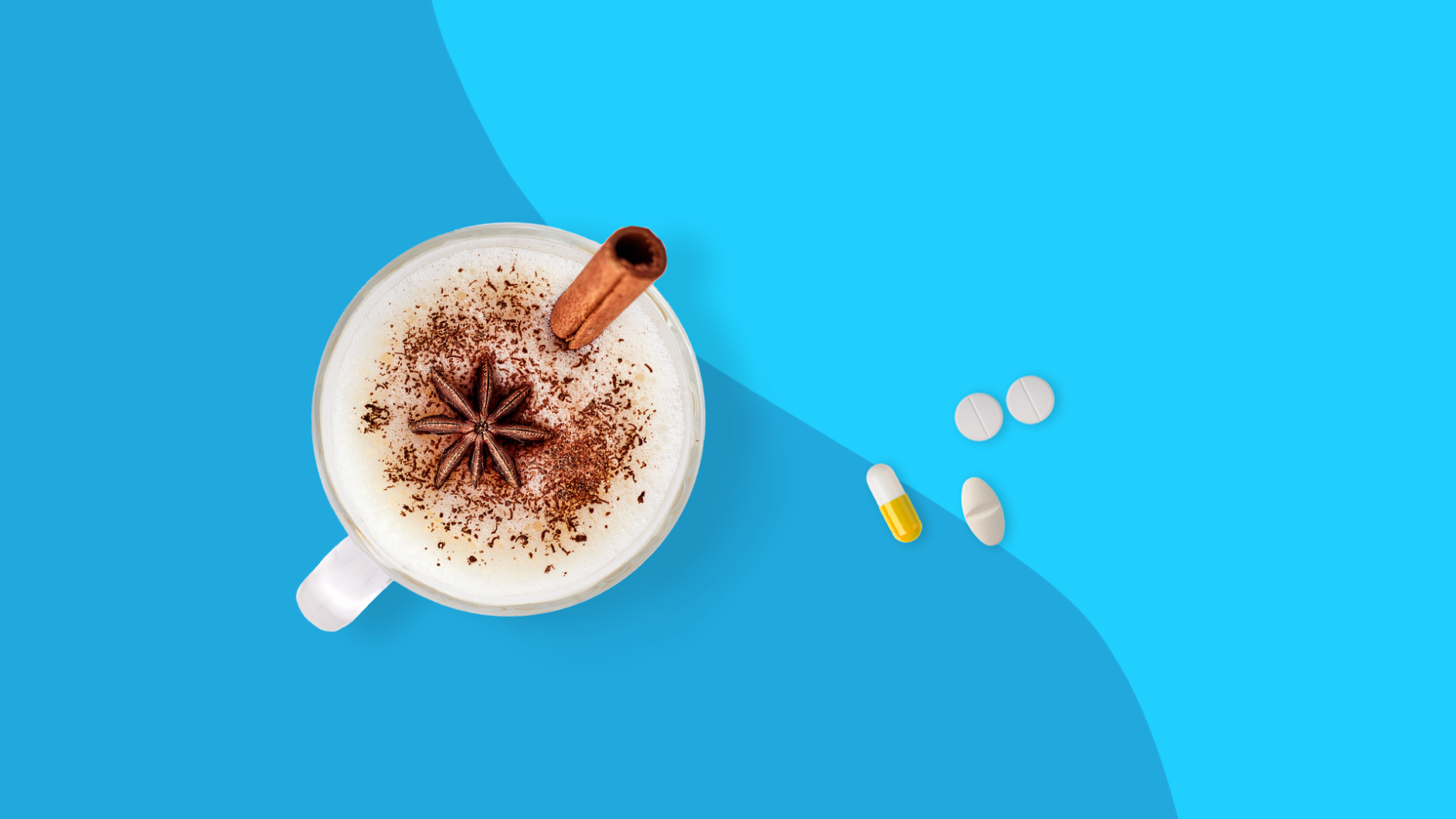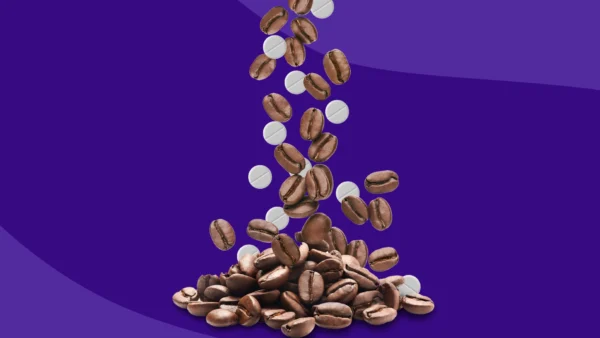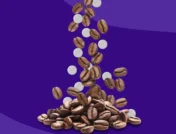The holiday season is here, and with that comes many opportunities to indulge. Sweet treats, rich hors d’oeuvres, adult beverages. All are calling your name. But some indulgences—namely, the alcoholic ones—do not mix with certain medications. In fact, according to the National Institute on Alcohol Abuse and Alcoholism, there are literally hundreds of medications that can cause harm when combined with booze. Add to that the fact that the average American doubles his or her alcohol intake between Thanksgiving and New Year’s Eve and, well, the potential for a negative alcohol-drug interaction among members of the general party-going population is pretty high.
Mixing alcohol and medication can cause serious side effects including nausea, vomiting, headaches, drowsiness, fainting, or reduced coordination. It can also increase your risk of internal bleeding, trouble breathing, and heart problems.
Turning down a festive drink might seem bah humbug—but, depending on the medications you take, it might be your only option. “Whenever you are on a medication, it’s important to understand the different interactions it may have with other substances,” says Ramzi Yacoub, Pharm.D., chief pharmacy officer for SingleCare. “If you drink alcohol … it is important to discuss this with your pharmacist or prescriber so they can advise you on what you can or can’t drink with,” he adds.
10 alcohol-drug interactions
Is your medication on the “no” list? We’re barely scratching the surface with this list, but you should definitely think twice before drinking alcohol with these 10 categories of prescription and over-the-counter drugs.
1. Antibiotics
You may be feeling 100% better by day nine of your 10-day course of antibiotics, but that doesn’t mean it is a good idea to hit the open bar at your company party. If you do, chances are you will wind up with an upset stomach, a headache, nausea, and vomiting. Certain antibiotics, like metronidazole (also known by the brand name Flagyl) or tinidazole (Tindamax), may even cause severe vomiting, headache, and flushing when combined with liquor.
2. Anti-anxiety medications
The holidays are nothing if not stressful. And if you are among the 18.1% of Americans living with an anxiety disorder, holiday-induced stress may feel unbearable at times. However, if you take a benzodiazepine, like Xanax (alprazolam) or Ativan (lorazepam), to help manage your anxiety, you are going to want to steer clear of alcohol while it is in your system—the combination can lead to a fatal overdose. Signs of trouble include drowsiness, dizziness, difficulty breathing, and behavioral problems, says Michaelene Kedzierski, R.Ph., a clinical professor and substance abuse consultant at the University of Washington School of Pharmacy. To keep yourself safe, plan to wait at least 24 hours between taking your medication and having that drink (and vice versa).
RELATED: What happens when you mix Zoloft and alcohol?
3. Blood thinners
Used to treat clotting disorders (such as deep vein thrombosis or thrombophilia) and to prevent strokes and heart attacks, blood thinners like warfarin (commonly known as Coumadin) should never be mixed with alcohol, Dr. Yacoub says. If you do combine them, you could find yourself in serious trouble because the medication interferes with the clotting process, he says. Alcohol also interferes with clotting so, when you mix the two, the risks increase even more. Next thing you know, you are suffering from an internal bleed—and you might not even know it because internal bleeding can go unnoticed until it’s too late. Scary stuff, and not worth that beer.
RELATED: What happens when you mix Eliquis and alcohol?
4. Painkillers
Prescription or non-prescription, it is essential to avoid alcohol while taking painkillers. With opioids, like oxycodone or hydrocodone, the risks are respiratory depression, excessive drowsiness, impaired motor control and overdose, Kedzierski says. But even over-the-counter painkillers can spell trouble. Acetaminophen (aka Tylenol), for example, is metabolized by the liver. So is alcohol, and when the two are mixed, liver damage or even liver failure are very real possibilities. As for ibuprofen, taking the drug regularly is associated with an increased risk of intestinal and/or stomach bleeding. Alcohol, Dr. Yacoub says, exacerbates this risk.
5. Sleeping pills
Obviously, prescription sleep medication like Ambien (zolpidem), Lunesta (eszopiclone), and Restoril (temazepam) is designed to help you catch some ZZZs. Alcohol is also a sedative. Use the two simultaneously and the effects of the sleeping pill are going to increase. Expect to experience excessive sleepiness, dizziness, slowed breathing, and impaired motor control, says Dr. Yacoub.
RELATED: What happens when you mix Ambien and alcohol?
6. Allergy medications
First-generation antihistamines like Benadryl (diphenhydramine), Chlor-Trimeton (chlorpheniramine), Tavist (clemastine), and Atarax (hydroxyzine) not only stop the itchy eyes, sneezing, and hives that often accompany an allergic reaction—they also can impair your motor control, cause dizziness, and make you very, very sleepy. Because alcohol can also cause these same side effects, you’ll want to make sure to avoid it when you take these allergy meds. The exception? If you happen to have an anaphylactic reaction to an allergen after you’ve had a drink—in that case, take the antihistamine (and seek emergency medical help).
Second-generation antihistamines Allegra (fexofenadine) and Claritin (loratadine) don’t typically cause the sorts of side effects that are intensified by alcohol, but Zyrtec (cetirizine) and Xyzal (levocetirizine) should not be combined with alcohol. Speak with your doctor or pharmacist before mixing an antihistamine with your favorite cocktail.
RELATED: What happens when you mix Sudafed and alcohol?
7. Cough medicine
Sometimes that annoying cough hangs around much longer than any of the other symptoms that come with annoying seasonal viruses. And since you are feeling mostly better, it might seem logical to take a dose of cough medicine before heading out to that holiday wine tasting event you’ve been looking forward to. Unfortunately, as long as you need the meds, you are going to need to pass on the wine. Why? Well, OTC cough medicines tend to contain a mix of ingredients (like dextromethorphan, acetaminophen, antihistamines, decongestants) that each have their own individual alcohol interactions, says Dr. Yacoub. Many cough syrups even contain alcohol, he warns, so if you are drinking along with taking your NyQuil, you could be consuming alcohol in excess without even realizing it.
Prescription cough suppressants (like promethazine-codeine) are powerful central nervous system depressants whose effects would be increased by alcohol, leading to excess drowsiness and dizziness.
“It is extremely important to understand the ingredients in these medications and avoid alcohol [while taking them] as they may cause drowsiness, dizziness, liver damage, and nausea,” he explains.
RELATED: What happens when you mix cold and flu medicine and alcohol?
8. Muscle relaxers
That muscle spasm in your neck or tightness in your back has been interfering with your life for days now. Unfortunately, if you are taking a muscle relaxer to deal with the pain, it is about to interfere with your plans to sip a mimosa this weekend at the holiday brunch your best friend is hosting, too. Like many of the meds on this list, muscle relaxers like Amrix/Fexmid/Flexeril (cyclobenzaprine), Robaxin (methocarbamol) and Zanaflex (tizanidine) come with side effects like dizziness, drowsiness, impaired motor control and respiratory depression.
“The combination of alcohol with these types of medications may increase these side effects,” Dr. Yacoub says.
9. Proton pump inhibitors and heartburn medications
Sorry to break the news, but if you decide to take Nexium (esomeprazole) or Prilosec (omeprazole), or one of the numerous other PPIs or heartburn medications out there, to ease your horrible heartburn after a gluttonous margarita-and-taco night, prepare to experience some unpleasant side effects, like nausea, a headache and drowsiness, says Dr. Yacoub. Same goes for those who take one of these medications for chronic GI issues, such as GERD or eosinophilic esophagitis. Furthermore, alcohol will increase stomach acid production, which is one of the root causes of heartburn, indigestion, and stomach ulcers. Proton pump inhibitors and heartburn (prescription and OTC) meds are used to treat stomach acid production, so in a sense you are rendering your medication pointless when you mix it with alcohol.
10. Blood pressure and heart disease medications
Last but not least, mixing blood pressure and/or heart disease medications (like beta blockers, ACE inhibitors, alpha blockers and numerous others) with alcohol is a definite ‘nope’ according to Kedzierski and Dr. Yacoub. The danger?
“The combination of these medications and alcohol can lead to excessive blood pressure lowering,” explains Dr. Yacoub. “When your blood pressure is too low, it can lead to sedation, dizziness, lightheadedness, and increased risk of falls and fainting.”
Alcohol and medication: The bottom line
So this holiday season make sure to think twice before knocking a few back at the company holiday party—your body (and your coworkers) will thank you.
If you or a loved one need help to stop drinking, there are many resources for people with alcohol use disorders. Call SAMHSA’s national helpline for substance use disorders at 1-800-662-HELP. Or, use the online tool from the National Institute on Alcohol Abuse and Alcoholism to find treatment resources near you.











